PMQs live blog | 2 November 2011
PMQs, 2 November 2011
PMQs, 2 November 2011
When the topic of Greece comes up at PMQs, David Cameron will need to avoid stepping on three land mines. The first task is not to say anything about what is going on in Athens, or Rome for that matter, that will exacerbate market anxieties. The second is a diplomatic challenge, to avoid anything that would sour Britain’s pitch ahead of the G20. The third, and perhaps most difficult one, is to keep his own backbenchers on side. An ever growing number of Tories doubt that a 17 member Euro and fiscal union is in Britain’s, or Europe’s, interests. Already, some Tory backbenchers are talking about going to Greece,
As Fraser pointed out yesterday, the Spectator’s debate on international aid is tonight (all CoffeeHousers welcome, tickets available here). To further set the stage for that debate, here’s a response to Fraser’s original post from the folk at Christian Aid: I’m glad that, in his post yesterday, the Spectator editor said he is in favour of aid, and that some of it is best done by governments. And, like him, I’m also in favour of aid spending being at least protected from cuts. On these two points we agree. That’s about the extent of our common ground. The British government made a commitment to devote 0.7 per cent of economic

An “enhanced offer” is how Treasury types are describing the revised pensions package that will be put before union bosses today — and so it is. As far as we can tell, concessions have been made in three areas: i) the changes to public sector pensions will be spread across seven years, rather than five; ii) the accrual rate, which determines how much of a workers’ salary is notionally set aside for their pension each year, will be made more generous; and iii) the “cost ceiling,” which sets a cap on long-term taxpayer contributions, will be raised for various schemes. There could be more on offer, too. But all that,
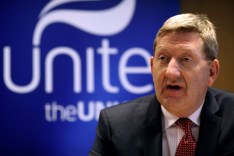
Here’s one for newswatchers: a lesser spotted on-air apology from the BBC. During the Conservative Party conference, you may remember, they purported to show footage of Steve Hilton taking Andrew Tyrie into a corner to persuade him of the government’s line. But they are about to publicly admit, during the 5pm bulletin on the BBC News Channel, that they misrepresented what actually happened — and they’re sorry about it. Peter Oborne detailed the misrepresentation in his column last week; drawing attention to the clarifying blog post that the BBC’s James Landale graciously wrote on the matter, two weeks ago. Anyway, here’s the text of the BBC’s apology: “Last month we
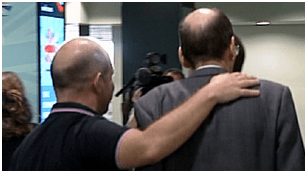
Back in August, the riots were being talked about as an event that would redefine our politics. But the economic news has been so relentless that the post-riots issues have received minimal coverage. This, though, doesn’t make them any less important. This week, we’re seeing two strands of the government’s response. First, Louise Casey starts work at the DCLG on dealing with the 100,000 problem families that the government has identified. Second, the May and IDS report on gangs comes out. So far what’s been trailed from the report is the proposal to create a new offence of intent to supply fire-arms. But what’ll be most interesting is to see

The pledge to almost double Britain’s international aid budget was made in the boom years, when the government actually had money. In the bust, there is something deeply strange — almost perverse — about borrowing money from China and giving it to India. It’s time to reassess Britain’s aid commitment, and The Spectator is having a debate about it tomorrow night. I hope CoffeeHousers will be able to come because it is, I think, a crucial issue. Alan Duncan is the man to thanks — or blame, depending on your point of view — for the Tories committing to spend 0.7 per cent of economic output on foreign aid. He

The growth number for the third quarter of this year is out, and it’s a little bit better than expected: 0.5 per cent. Many economists were saying that we’d have to hit around 0.4 per cent to recoup the growth lost to the Royal Wedding and Japanese Tsunami in Q2, so we’ve managed that. But, that aside, this is not the time for party poppers and champagne corks. It may not be Econopocalypse, but it’s not Mega Growth either. We are still living in a bleak, borderline stagflationary environment. Besides, I still reckon that we oughtn’t get especially worked up about these quarterly figures anyway. For starters, the obsession over
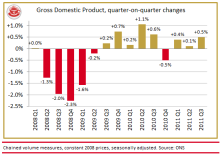
The games have started a day early, folks. The latest quarterly growth figures are set to be released tomorrow morning, but already Ed Balls is waxing insistent about what they have to be: “Simply to stay on track for the Office for Budget Responsibility’s most recent forecast, already downgraded three times, we will need to see growth in the third quarter of 1.3 per cent. And to reach the OECD’s latest and more pessimistic forecast, we will need to see a figure next week of 0.9 per cent.” To be fair — and this is not something you’ll read often on Coffee House — the Shadow Chancellor has a point,

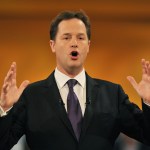
“The Deputy Prime Minister, Nick Clegg, will today announce proceeds from the government growth fund which will protect or safeguard 200,000 jobs.” This sentence contains everything that’s wrong about this government’s schizophrenic approach to economic recovery. Rather than cut taxes and let the economy grow, they increase tax — and then give people back a portion of the cash, expecting to be thanked as they do so. And, for good measure, dropping in a spurious jobs number. Nick Clegg was on the Today programme this morning, showcasing the phenomenon that retards so many economies: politicians seeking credit for giving one man’s money to another. He started off by announcing that
The British electorate, in a referendum held on Thursday 19th June 2014, votes to leave the EU. On Monday, 23 June 2014, the Prime Minister and the Leader of the Opposition send the following joint letter to the President of the EU Council, the President of the Commission and the heads of state and government of the other twenty-six EU member states. Dear Herman, José-Manuel, Angela, Nicolas, Silvio etc. etc. …, UK Resumption of Sovereignty On 19 June 2014, in a referendum, the British electorate voted decisively to leave the European Union. Her Majesty the Queen, in her capacity as Head of State of the United Kingdom, consented to her
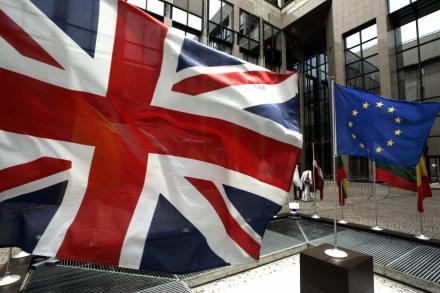

How much does public opinion on Europe matter? A poll for today’s Sunday Times found that 41 per cent want out of the EU and on the BBC1 Politics Show today, Jon Sopel confronted Douglas Alexander with this statistic. Wee Dougie replied that, on Monday’s vote, he was in the “no” lobby with the leaders of all British political parties – so of course he was in the mainstream. This raises a crucial issue: the vast disconnect over Europe between the political elite and the masses. To declare my hand: I’m in favour of our EU membership and regard the free movement of people, goods and services as a noble

A week may be a long time in politics, but it is no time at all in protest. As the inhabitants of Parliament Square have demonstrated, even a decade is as nothing so long as you have a constantly morphing cause, a council with no balls, and a small but steady stream of acolytes. Last weekend I watched a bridal party sneak in through the side entrance of St Paul’s Cathedral. This weekend I went back, curious to see whether the protest that had kept them from entering through the main door had located a point yet. Walking up from Fleet Street the first sight that greets the visitor is
And the word of the weekend is ‘repatriate’. Not only do we have yet another poll showing that the British public, when asked, would prefer to tug powers back from Brussels, but there’s also this eyecatching story in the Daily Telegraph. No.10, we’re told, is pushing Whitehall departments to determine just exactly where Europe’s influence could be counteracted. There is also a backbench group of Tory MPs providing covering ideas. So why hasn’t this been happening before now, particularly given how frustrated those around David Cameron have become with the constant torrent of EU directives? Part of the answer is that the events of the past week have made all
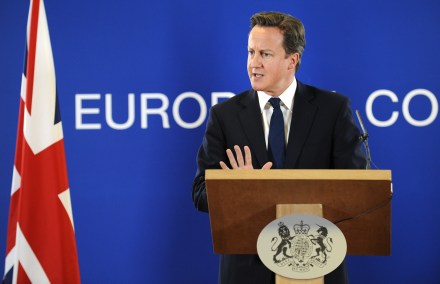

Open yesterday’s or this morning’s papers, and you’ll find plenty of reports about the snouts of FTSE100 chief execs being in the trough again, while the rest of us suffer. Their pay is up 49 per cent, we read. Most people’s first and only response to these accounts of the Incomes Data Services’ (IDS) latest findings will be anger — and understandably so. But much of this anger and reportage is based on a mis-reading of the actual report. The BBC’s influence is huge. Its original report compared the rise in base salaries (which wasn’t 49 per cent, but a much less impressive 3.2 per cent) with a median rise
Let’s end the working week how it began: with talk of a European referendum. The talk, in this case, is provided by Daniel Hannan, who wrote an article for us in 2008 about his efforts to promote a referendum on the Lisbon Treaty from within the European Parliament. Here it is, our latest excavation from the Spectator archives: For MEPs, public opinion is merely an inconvenience, Daniel Hannan, The Spectator, 22 November 2008 I’ve just done the most pointless thing an MEP can do: I’ve delivered a speech to the European Parliament. Actually, ‘speech’ is rather a grand word for my little soliloquy which, under the rules, had to be
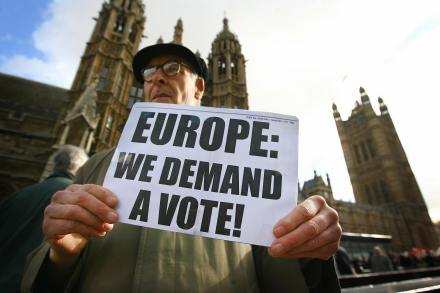
John Humphrys last night presented a documentary on welfare, the single most important topic in Britain. It was excellent, and I’d recommend CoffeeHousers watch the whole thing (on iPlayer here). Humphrys is a great presenter, himself the product of the now-forgotten days of social mobility when a kid from a working-class district (Splott in Cardiff) could end up presenting the 9 O’Clock News in his 30s. “In those days, everybody was expected to work,” he said of his childhood. “We knew only one family where the father did not work, and he was a pariah…. Today, one in three of working-age people is on out-of-work benefits.” This is what the
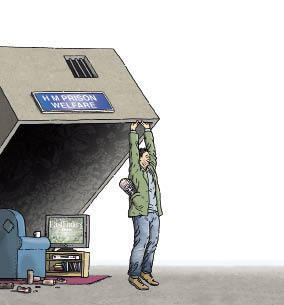
Aha, the Spectator’s cover story is gathering pace. If you were tuned into The BBC’s Daily Politics just now, then you will have enjoyed a preview of the terrific scrap this time-shifting proposal could provoke. They had on both Rebecca Harris MP, who is pushing for us to move to Central European Time (CET), and Peter Hitchens, who revealed in his article for us that the government is minded to back the idea (as well as describing Harris as “one of those homogenised, UHT female Tory MPs”). The pair were, of course, mediated by Andrew Neil. We shall try to secure video of the discussion, if possible. But, in the
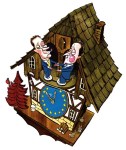
The government has, this morning, confirmed The Spectator’s cover story: that it is considering supporting Rebecca Harris’s bill to move Britain onto Central European Time. As we argue in the magazine, such a move would be a huge mistake both practically and politically. Under the new regime, anyone living north of Manchester would have to endure two months of the year when it was dark when they started work at 9am. Any government that supported this move would look like a government of southerners, by southerners for southerners. The consequences for the Union could be horrendous too. Just imagine what a propaganda gift the new time would be for Alex

The long flight from Australia should give David Cameron plenty time to think about Europe, and how it just won’t go away. He didn’t want this battle — not now, not ever. But in the Daily Telegraph today, the first in what will be a weekly column, I lay out the battlefield that awaits him on his return. First, this bailout is not the end. A trillion Euros needs to come from somewhere, and today the Chinese are being tapped up — God knows what we’ll agree to in return. But that doesn’t address what is, as Mervyn King has said, a solvency issue rather than a liquidity issue. And